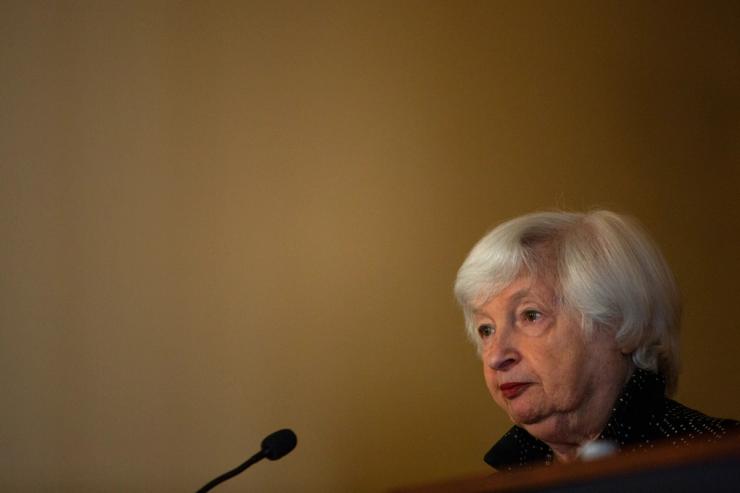The News
The US imposed sanctions Thursday on Gazprombank, the biggest Russian bank that had not yet been censured by Washington, as US President Joe Biden ramps up pressure on Moscow before he leaves office in January.
The US Treasury Department also targeted more than 50 small-to-medium banks and dozens of individuals connected to Russia’s financial sector.
“This sweeping action will make it harder for the Kremlin to evade U.S. sanctions and fund and equip its military,” US Treasury Secretary Janet Yellen said.
US authorities said Russia has used Gazprombank to pay its soldiers and to purchase military equipment for the Ukraine war.
The Biden administration had previously avoided sanctioning the bank for fear of impacting global energy markets, Bloomberg reported.
SIGNALS
Russia’s economy sputters as defense spending hits record highs
Russia’s State Duma approved on Thursday a three-year budget allocating nearly 40% of total spending to defense, The Moscow Times reported. The country’s economy is creaking under the pressure of wartime conditions, but is not yet close to collapse, a finance expert wrote for the Atlantic Council. Russia’s central bank hiked interest rates to 21% to try and slow the rampant inflation being fueled by military spending and recruitment. Stagflation — a combination of low growth and high inflation — remains a constant threat for the Russian economy, Russian economics outlet The Bell noted. But because no one can criticize the war in Ukraine openly, the central bank has chalked the current problems up to “external factors,” while private businesses blame the bank’s high interest rates.
West’s economic pressure has failed to cause a ‘nosedive’
While Western sanctions have made a serious dent in Russia’s economy, even White House officials have conceded they have not led to the “nosedive” they had imagined at the beginning of the war. Russia has circumvented some sanctions on key technology restrictions, and has largely succeeded at evading a “price cap” aimed at forcing Russia to sell oil at a discount. To bolster the current sanctions regime, The Hudson Institute’s Luke Coffey said the incoming Trump administration should “crack down on sanctions evasion to truly cripple the Russian economy.”



